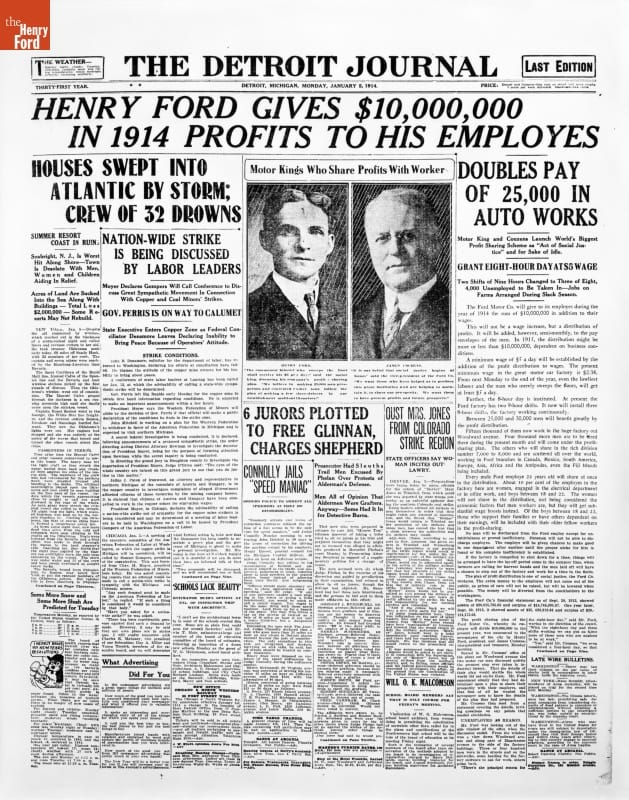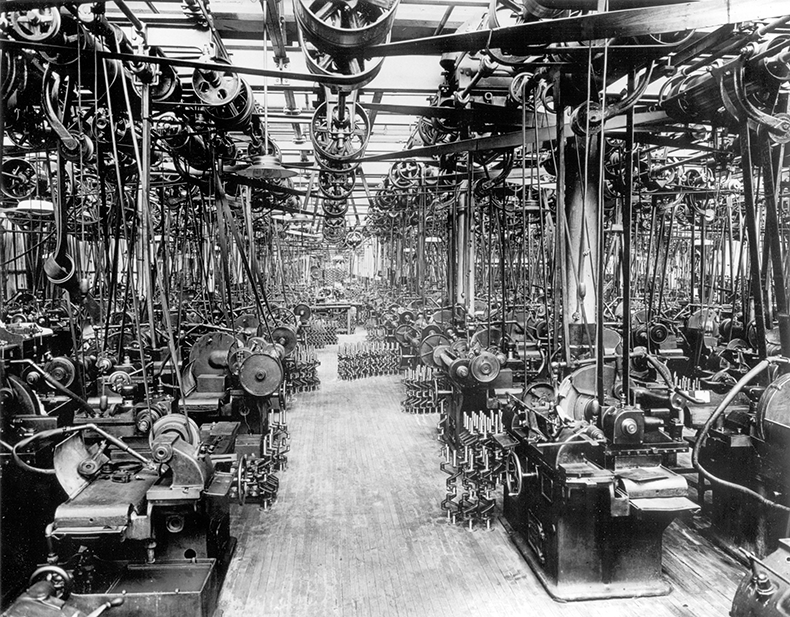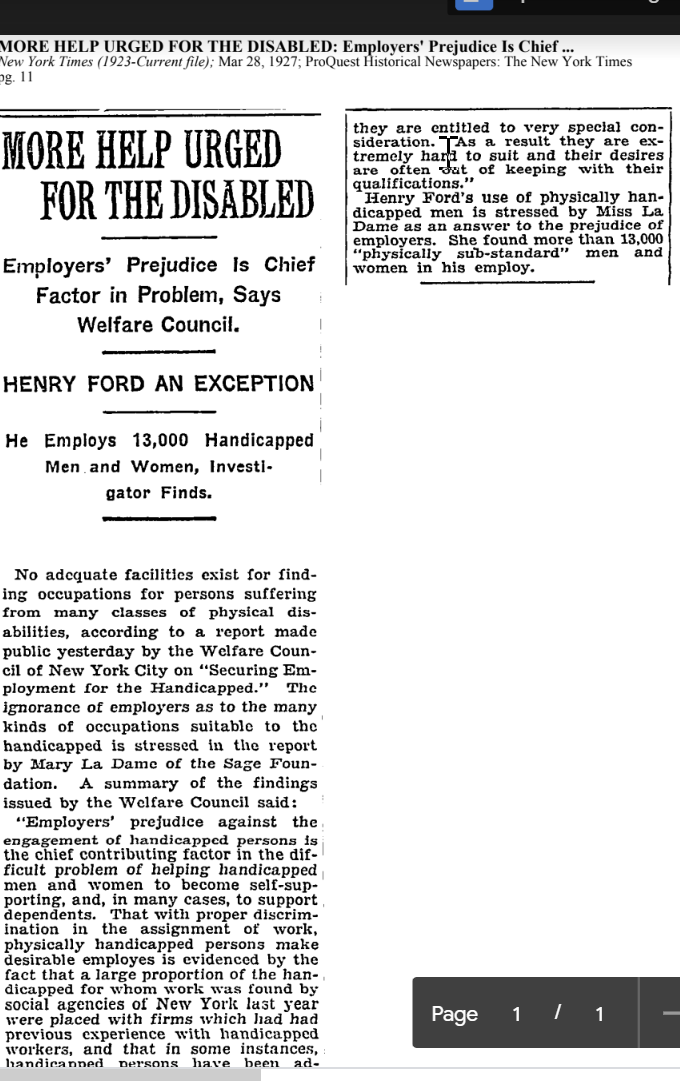Credit: Picture 1 - UAW.org
Henry Ford significantly broke barriers with employment in the Ford Motor Company (FMC). He hired many with the eligibility, will, and ability to work. Ford employed the disabled, handicapped, blind, and deaf. According to The New York Times March 28, 1927 newspaper edition, "Henry Ford employs 13,000 handicapped men and women". During the Great Migration, it was Ford who employed many African Americans who made their way from the south to the Union cities. From Cavendish Square, "Henry Ford even hired blind employees to sort parts by feel and saying", "One thing we will not tolerate is injustice of any kind." - Henry Ford. Unfortunately, he received heavy censure from white supremacists that only white men should be employed. His ability to not relent to the criticism was outstanding on his part, notwithstanding, his alleged hypocrisy towards the Jews and job assignments based on race.
Ford also increased the pay wage of his employees to $5.00 weekly for a five day; eight-hour shift. As a result of that increase, there was a high demand to work for him. According to The New York Times May 30, 1923 newspaper edition, "The $5.00 a week plan, inaugurated for the purpose of stimulating sales among the workers' family who could not buy cars outright, Henry Ford said 'Was a tremendous success'". As claimed by African American Employment - Henry Ford.org, "Half of the African Americans in Detroit eventually worked for Henry Ford". This means that because Henry Ford hired African Americans, they earned a middle-income salary which afforded them the opportunity for increased homeownership and higher education for their children. There is no doubt that he broke barriers on employment as evident above.
Anti-Unionism
Ford did not believe in employee empowerment. He despised the idea of having his workers affect the operations of his company, which would happen with a Union. At one point, a mob fight started at the Rogue Plant because they were campaigning for more rights and authority. The fight was named Battle of the Overpass and the campaign was named "Unionism not Fordism". The picture below on the left depicts a fight that occurred during the Battle of the Overpass. The picture below on the right portrays a campaign poster an FMC employee made to illustrate his cause.
Credit: Picture 2 - UAW.org
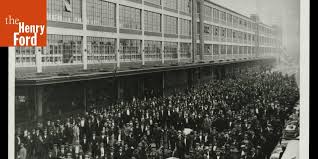
Credit: Picture 1 - Henry Ford.org
Thousands of workers rush to the main Ford Motor Company Plant for a chance at a new job because of the increase of the weekly pay wage from $2.34 (not much appeal) to $5.00 (very appealing). Inflation brings that pay wage to $128.49 weekly in 2020. That wage might not seem much, but most people were poor back then. For that reason the weekly pay wage was tremendously desirable.
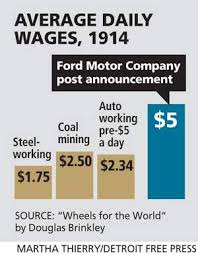
Credit: Picture 2 - WheelsForTheWorld
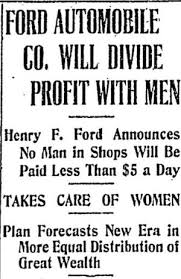
Credit: Picture 3 - New York Times Newspaper
Anti-Semitism
Henry Ford was discriminatory towards Jews. He owned a newspaper called Dearborn Independent which had a page with false accusations of what he believed Jews did to ruin America. His affrontations against them are highly unexcusable. His weekly page was called the "International Jew" as shown below.
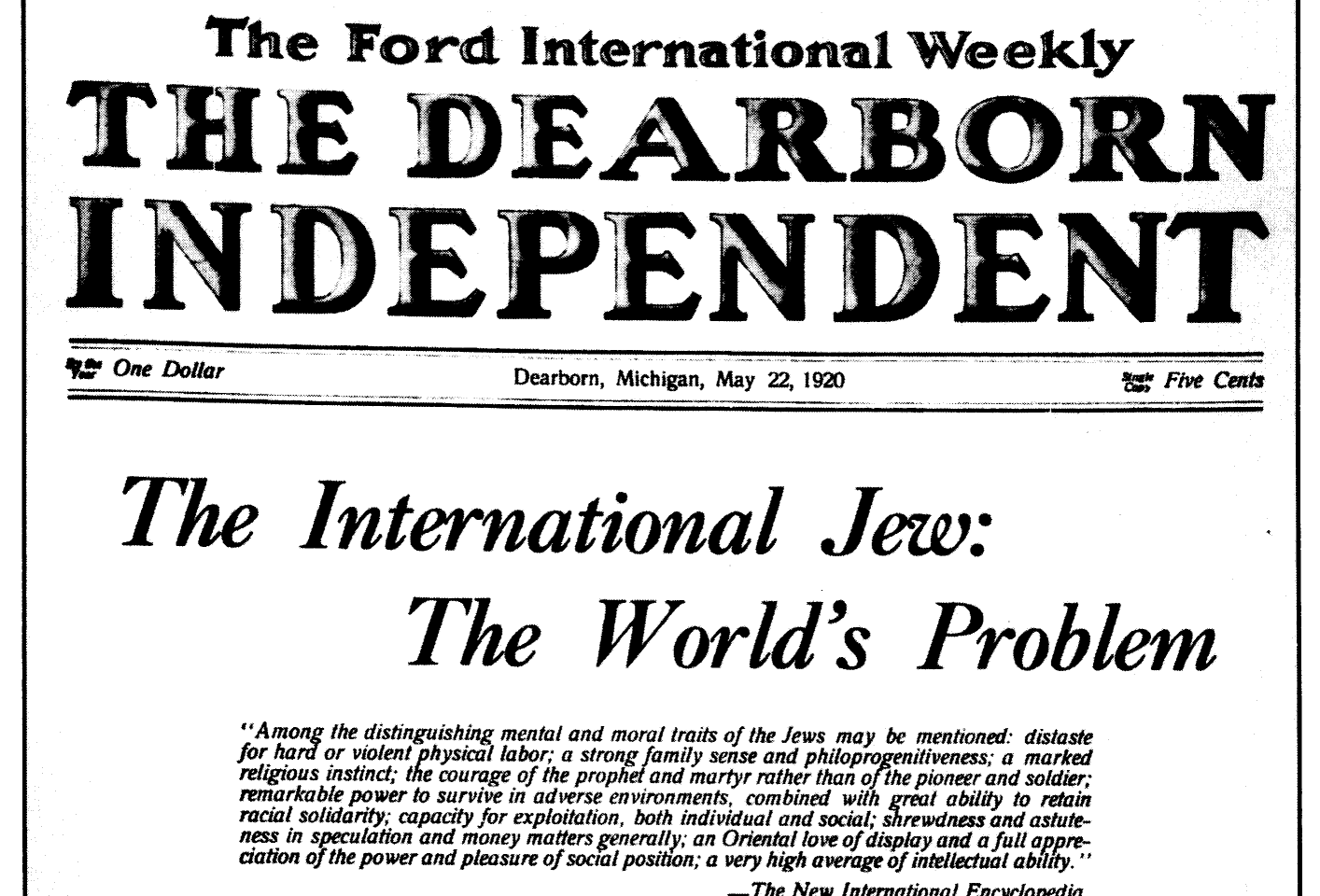
Credit: Newspaper - Henry Ford.orgn...
Image Slider
